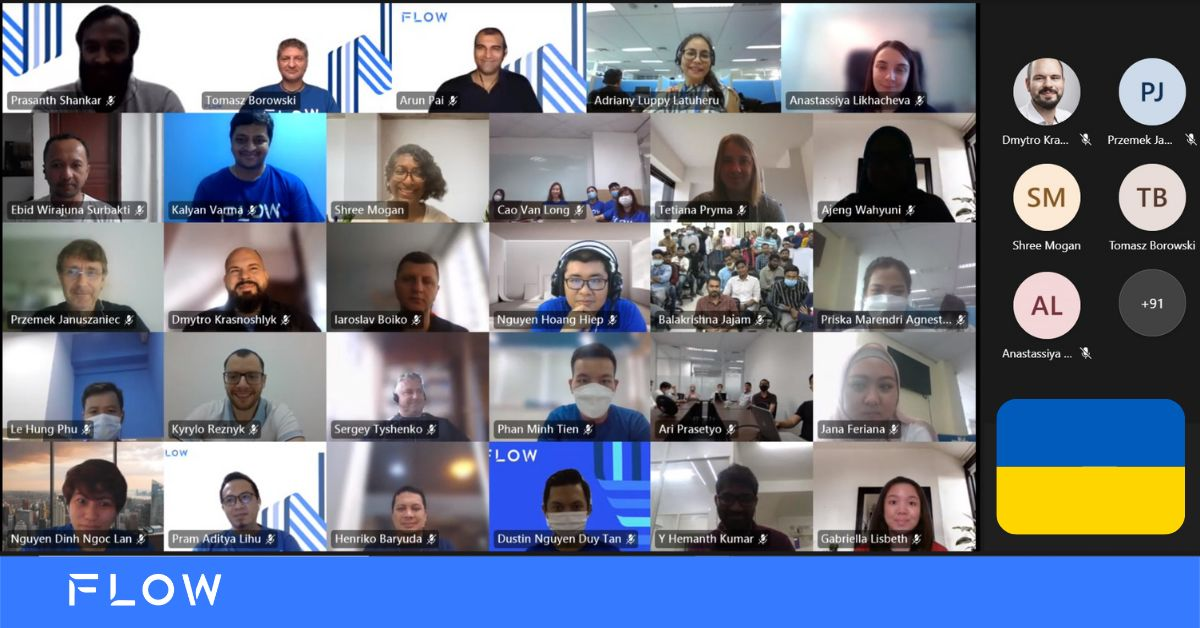FLOW, a credit management company that has brought changes to the settlement of unsecured consumer credit in Asia organised a Financial Literacy Webinar entitled “Financial Literacy & The Responsibility of Financial Institutions ” to provide financial literacy education for the wider community in Indonesia. The webinar was conducted on 30 March 2021 via virtual zoom.
Present at this webinar were Sales Director Flow, Pram Aditya Lihu who became the moderator and our inspirational speakers, Andy Nahil Gultom (External Affairs Director, Home Credit Indonesia), Reza I. Sardjono (Corporate Planning and Investor Relations Head, Bank Danamon) and Raymond Hutagalung (Head of Collection, FINMAS).
As we all know, currently the condition of debt bondage makes borrowers more vulnerable, especially during the COVID19 pandemic. The loss of a job and or a decline in economic activity makes it more difficult for a person to pay their obligations, especially in Indonesia. The increase in the amount of debt was due to, among others, the increase in the use of credit cards and of course technology-based loans (online peer 2 peer landing) and other consumptive loans without being based on good financial literacy.
Therefore with the increasingly difficult economic challenges due to the current pandemic, the problem of debt bondage can become a time bomb that can exacerbate the impact of the COVID19 pandemic, to prevent this from happening, it is very important for all of us as industry players to drive financial education to all levels of society, as well as the importance of financial institutions to care about financial literacy by helping to introduce, open insights related to the importance of financial literacy in Indonesian society today.
This webinar activity is a matter of pride for Flow because it can help increase financial literacy education in Indonesia which is in line with government programs. “We hope this activity can provide broader financial insights for participants. “The presence of various financial products today and the information and solutions provided at this time hopefully will help the public understand this,” said Pram Aditya Lihu, Sales Director of Flow Indonesia.
Currently, Indonesia’s economic condition is gradually recovering and improving in line with financial institutions and the financial community who also contribute to accelerating recovery holds Financial Education Webinar and financial literacy activities like this are an important part of accelerating the economic transition or recovery process, which is even faster than expected.
Andy Nahil Gultom as External Affairs Director of Home Credit Indonesia said that financial literacy is related to knowledge and skill with economic decisions or activities, and how we apply them in our daily lives which includes 2 aspects, knowing and doing. We know and we applied in our life.
Agreeing with this, Raymond Poltak Hutagalung as Head of Collections Finance stated that with the AI (Artificial Intelligence) system it is also very supportive and helpful for current financial institutions as well as financial institutions to maintain the security and comfort of consumer data, and choose p2p or Other financial institutions that have been registered and registered with the OJK (Financial Services Authority)
And also, building a trust of our customers / consumers is how we convince them to believe in our products and services and we as financial institutions must provide security and comfort and protection for consumers as well, said Reza I. Sardjono as Corporate Planning and Investor Relations Head, Bank Danamon. We all believe that with the presence of digital access that is getting easier nowadays, it can be an opportunity for the public to meet their information needs regarding basic financial management and how to invest.
There are so many benefits of financial inclusion and financial literacy for the economy, especially for regulators, government, and the private sector. Because among the benefits of financial inclusion are increasing economic efficiency, supporting financial system stability, supporting financial market deepening, and contributing positively to sustainable local and national economic growth.
The challenge of financial literacy and inclusion today is the need for a strong commitment from the highest authorities in campaigning for a comprehensive and equitable financial literacy strategy. In addition, collaboration between fellow policy makers in financial education, namely: Financial Services Authority, Private Sector, Education Sector, Media, and law enforcement officials.
And in the end, everything will lead to the formation of an Inclusive financial ecosystem where every level of society can have access to financial products and services that are useful and affordable to meet the financial needs of the community. Financial products and services, such as access to Payment Transactions, Savings, Credit, Insurance, and Investments, must be introduced to the public in a responsible and sustainable manner. Therefore, financial literacy is very important to ensure macro-economic growth and increased financial literacy is not only the responsibility of the government, but all industry players and all levels of society must be able to participate and contribute to the creation of an inclusive financial ecosystem.
Watch the full webinar below:


 International (EN)
International (EN) Indonesia (ID)
Indonesia (ID)


